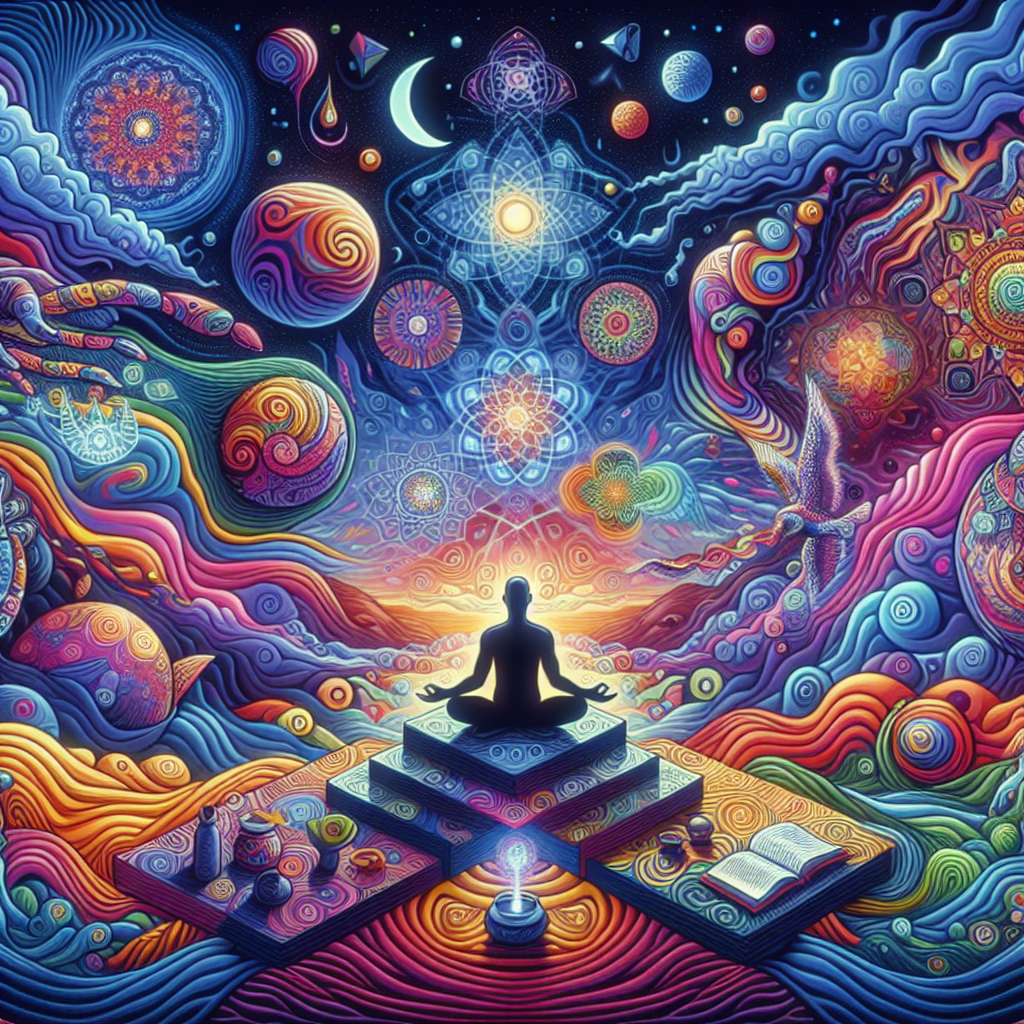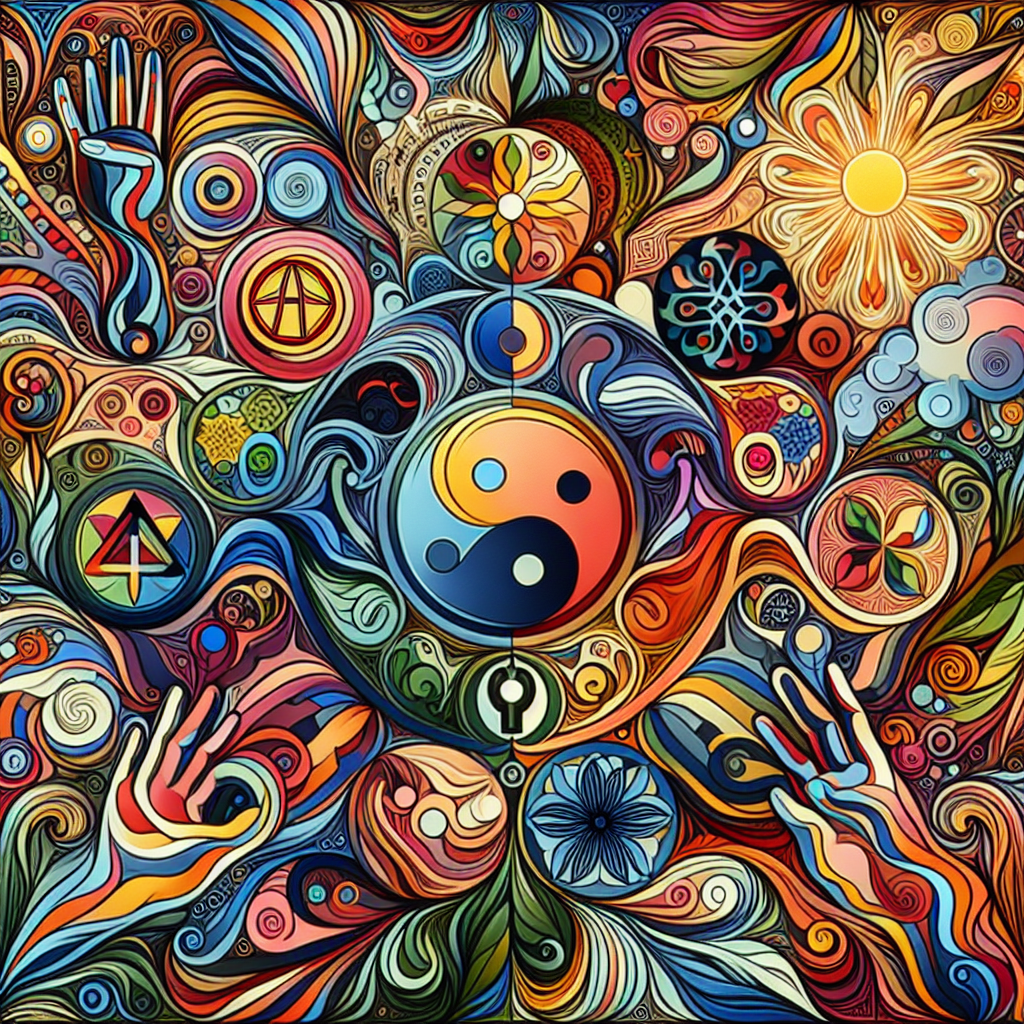The Role of Psychedelics in Holistic Well-Being

Discover more about the role of psychedelics in holistic well-being. Uncover the potential benefits and transformative power these substances can have on your overall health. Visit My Vibrant Vitality to learn more.
Exploring the Impact of Psychedelics on Emotional and Mental Health
Psychedelics, once relegated to the fringes of society, are now experiencing a renaissance in the realm of mental health and holistic well-being. These substances, which include LSD, psilocybin (magic mushrooms), and DMT, have been the subject of numerous scientific studies, revealing their potential to profoundly impact emotional and mental health.
Psychedelics are known for their ability to induce altered states of consciousness, characterized by changes in perception, mood, and cognitive processes. These experiences, often described as mystical or spiritual, can lead to significant shifts in one’s perspective and understanding of the self. This transformative potential is what makes psychedelics a promising tool for mental health treatment.
Research has shown that psychedelics can be particularly effective in treating conditions that are notoriously resistant to traditional therapies, such as depression, anxiety, and post-traumatic stress disorder (PTSD). For instance, a study published in the Journal of Psychopharmacology found that a single dose of psilocybin, combined with psychotherapy, significantly improved symptoms in patients with treatment-resistant depression.
Moreover, psychedelics have been found to reduce anxiety and improve mood in patients with life-threatening illnesses. A study conducted at New York University showed that a single dose of psilocybin significantly reduced existential anxiety and depression in patients with advanced cancer, with effects lasting up to seven months.
The therapeutic potential of psychedelics lies in their ability to facilitate deep emotional and psychological exploration. During a psychedelic experience, individuals often confront and process difficult emotions, leading to catharsis and emotional release. This process, known as psychedelic-assisted psychotherapy, allows individuals to revisit traumatic experiences in a safe and controlled environment, fostering healing and growth.
Psychedelics also have the potential to enhance mindfulness and promote psychological flexibility. A study published in the Journal of Contextual Behavioral Science found that use of psychedelics was associated with increased mindfulness, which is linked to improved mental health outcomes. Additionally, psychedelics have been found to increase psychological flexibility, or the ability to adapt to changes and cope with stress, which is a key component of mental health.
Despite the promising research, it’s important to note that psychedelics are not a panacea for mental health issues. They are powerful substances that should be used responsibly and under the guidance of a trained professional. Misuse of psychedelics can lead to negative experiences, such as anxiety, paranoia, and psychosis.
Furthermore, while psychedelics can facilitate profound personal growth and healing, they are not a substitute for ongoing mental health care. They should be viewed as a tool to complement traditional therapies, not replace them.
In conclusion, the role of psychedelics in holistic well-being is becoming increasingly recognized. Their potential to facilitate deep emotional healing and promote psychological flexibility makes them a promising tool for mental health treatment. However, like any powerful tool, they must be used responsibly and in conjunction with ongoing mental health care. As research continues to explore the therapeutic potential of psychedelics, it’s clear that these substances have much to offer in the realm of emotional and mental health.
The Role of Psychedelics in Enhancing Mind-Body Connection

The role of psychedelics in holistic well-being is a topic that has been gaining significant attention in recent years. This is largely due to a growing body of research suggesting that these substances, when used responsibly and under the guidance of a trained professional, can have profound effects on mental health and overall well-being. One of the most intriguing aspects of this research is the potential role of psychedelics in enhancing the mind-body connection, a fundamental aspect of holistic health.
The mind-body connection refers to the relationship between our mental and physical health. It is based on the understanding that our thoughts, feelings, beliefs, and attitudes can positively or negatively affect our biological functioning. Conversely, what we do with our physical body can impact our mental state. This interconnection is a central tenet of holistic health, which emphasizes the importance of considering the whole person – body, mind, spirit, and emotions – in the quest for optimal health and wellness.
Psychedelics, such as psilocybin (found in magic mushrooms), LSD, and ayahuasca, have been found to significantly enhance this mind-body connection. They achieve this by altering consciousness in a way that allows individuals to experience a sense of unity and interconnectedness, both within themselves and with the world around them. This can lead to a greater awareness of the body and its sensations, as well as a deeper understanding of one’s thoughts and emotions.
Moreover, psychedelics can facilitate a process known as “ego dissolution,” where one’s sense of self temporarily dissolves, leading to a state of consciousness that is free from the constraints of the ego. This can result in a profound sense of connection with the universe and a dissolution of the boundaries between the self and the external world. Such experiences can lead to significant shifts in perspective and a greater sense of harmony and balance within the individual.
In addition to these subjective experiences, research has shown that psychedelics can have tangible effects on the brain that may contribute to their ability to enhance the mind-body connection. For instance, neuroimaging studies have shown that psychedelics increase connectivity between different regions of the brain, leading to a more integrated and cohesive brain network. This increased connectivity may facilitate communication between areas of the brain that are typically segregated, thereby enhancing the integration of mental and physical processes.
Furthermore, psychedelics have been found to promote neuroplasticity – the brain’s ability to reorganize itself by forming new neural connections. This can lead to lasting changes in brain function and structure, potentially enhancing the mind-body connection in a more enduring way.
However, it’s important to note that while the potential benefits of psychedelics are promising, they are not without risks. These substances can induce intense and sometimes challenging experiences, and their use should always be supervised by a trained professional. Moreover, further research is needed to fully understand the mechanisms through which psychedelics enhance the mind-body connection and to determine the most effective ways to harness their potential for holistic well-being.
In conclusion, the role of psychedelics in enhancing the mind-body connection is a fascinating area of research that holds great promise for the field of holistic health. By deepening our understanding of ourselves and our place in the universe, these substances may offer a powerful tool for promoting mental and physical health and achieving a greater sense of balance and harmony in our lives.
Psychedelics and Spirituality: A New Approach to Holistic Well-Being
The role of psychedelics in holistic well-being is a topic that has been gaining significant attention in recent years. This is largely due to a growing body of research suggesting that these substances, when used responsibly and under the guidance of a trained professional, can have profound effects on mental health and spiritual growth.
Psychedelics, such as psilocybin (found in magic mushrooms), LSD, and ayahuasca, have been used for centuries by various cultures around the world for their spiritual and healing properties. These substances are known to induce altered states of consciousness, often characterized by intense emotional experiences and vivid, dream-like visions.
In the context of holistic well-being, these experiences can be transformative. They can provide individuals with a new perspective on their lives, helping them to confront and resolve deep-seated emotional issues, and fostering a sense of connection and unity with the world around them. This can lead to significant improvements in mental health, including reductions in anxiety, depression, and addiction.
Moreover, the spiritual dimension of these experiences cannot be overlooked. Many individuals who use psychedelics report profound mystical experiences, often described as a sense of oneness with the universe, or a direct encounter with a higher power. These experiences can have a profound impact on an individual’s spiritual beliefs and values, leading to a deeper sense of purpose and meaning in life.
This intersection of mental health and spirituality is where the true potential of psychedelics for holistic well-being lies. By facilitating deep psychological healing and spiritual growth, these substances can help individuals to achieve a state of balance and harmony in all aspects of their lives.
However, it’s important to note that the use of psychedelics is not without risks. These substances can induce intense and sometimes distressing experiences, and their use should always be supervised by a trained professional. Furthermore, they are not a panacea for all mental health issues, and their use should be considered as part of a broader approach to mental health care that includes traditional therapies and lifestyle changes.
In recent years, there has been a resurgence of interest in the therapeutic potential of psychedelics, with a number of clinical trials currently underway to investigate their efficacy in treating a range of mental health conditions. This research is still in its early stages, but the results so far are promising.
In conclusion, the role of psychedelics in holistic well-being is a complex and multifaceted topic. These substances have the potential to facilitate deep psychological healing and spiritual growth, contributing to a state of balance and harmony in all aspects of an individual’s life. However, their use is not without risks, and should always be undertaken with caution and under the guidance of a trained professional. As research in this area continues to evolve, it is hoped that we will gain a deeper understanding of the potential benefits and risks of these substances, and how they can be used responsibly to promote holistic well-being.